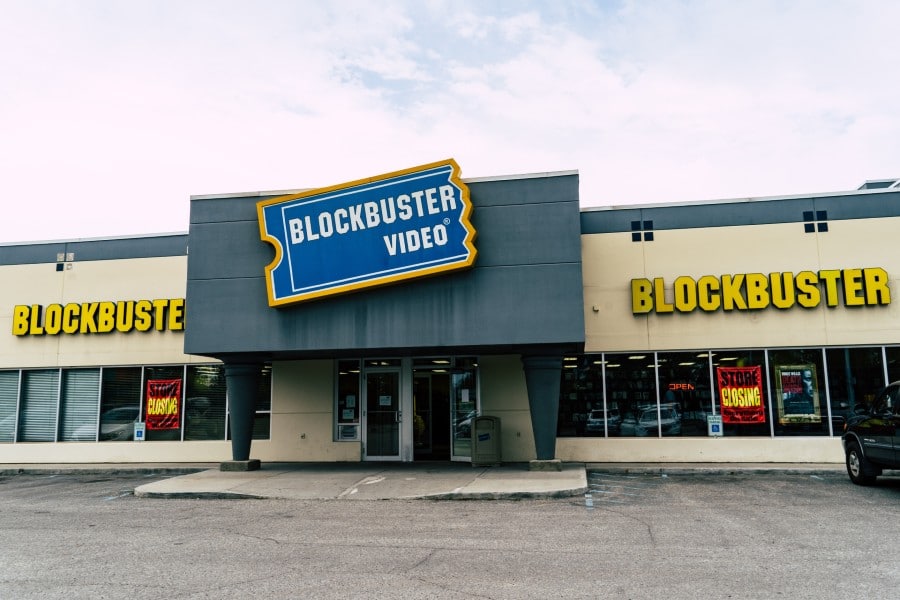In 1991, I mowed my neighbor Ken’s lawn for $10 every two weeks. Ken Pauley was a 70-year-old bachelor who made money buying and selling beer bottles. He didn’t mow his lawn because he was blind.
In the summer, Ken walked one mile every day. With his walking stick, he identified where the edge of the road met the ditch.
Before e-transfers, braille on bills and debit cards, Ken could tell the difference between a ten and a twenty-dollar bill. Not once did he try to overpay or underpay me.
At the same time I was mowing Ken’s lawn, the top ten companies on the US stock market in terms of revenue was littered with automakers and oil companies. Nine of them were American.
The company Edison built declared $58 billion and was 8th on the list.
General Motors was first with $125 billion, followed by Exxon Mobil with $105 billion and Ford with $98 billion.
Thirty years later, the top 10 companies were replaced with technology, retail, and foreign companies.
Only six are American.
Only Exxon Mobil is still visible from the top.
They sit at #20 with $183 billion.
Their sales didn’t double in 30 years.
Walmart’s sales are $562 billion, eclipsing a shrinking GM (down $3 billion).
The top automaker in 2020 was Volkswagen at $262 billion. More than double GM.
Without going into the US automakers’ struggles over the past 30 years, in 1991, no one could predict what the next thirty years would hold.
Thirty years is a long time ago.
However, if you plan on being in business in 30 years, there is a slim chance the leaders in your category today will understand their need for change.
Jim Collins wrote in his books, “Good to Great” and “Built to Last” on how companies have stood the test of time. But if you look closely, they become the exception to the rule and not the norm.
Kingdoms fall. And new nations emerge.
For every IBM, there are 100 Blockbusters.
For every General Motors, there are 100 Polaroids.
There are wars, government policy, terrorism, pandemics, stock market crashes, technological advancements.
Not to mention changing social sentiment, foreign investments, and societal shifts on the environment, education, privacy, and healthcare.
The future is impossible to predict.
But there are a few things that are certain.
Tomorrow will be different than today.
What got you here won’t help you tomorrow.
Quick to action wins quickly. A slow reaction is a slow death.
General Motors had a 34.63% market share on US auto sales in 1991. In 2016, they dropped to 17.03%. Ford dropped 9% over the same time frame. As they looked down from their shiny towers worrying about each other, they didn’t see Hyundai, Volkswagen, Honda climbing the towers.
They didn’t understand their blind spots.
Customers wanted better gas mileage, lower maintenance costs, higher resale value while shifting their attitudes toward foreign cars.
During the Great Recession of 2008, the Big Three would have gone bankrupt simultaneously if Congress wouldn’t have bailed them out.
The other automakers weren’t at the Congress alter praying for a miracle.
To learn from these once shrinking giants, you can bet the leaders in your category will one day be in trouble.
You can catch and pass them.
To do this, you must identify your blind spots.
If you’re thinking, “If I knew my blind spots, they wouldn’t be blind spots,” you’re smarter than the average bear, Yogi.
You’re too close to your business.
Blind spots are easier to identify by outsiders.
They have no “skin” in your game.
They’re not blinded by your history, your success, or your failures.
When your blind spots are visible, you’ll adjust accordingly.
Salvage yards are littered with cars whose drivers didn’t see the oncoming dangers.
Cars have insurance for such things.
Your business does not.
It has you.
When I think about blind spots, I think of Ken Pauley. He knew what he could do and what he couldn’t. In playing Dominos with him, I realized his trick with money.
He memorized things, like steps to the kitchen, distance to the stairs, and the amount of bills in his wallet.
- Pretend is bad for business - July 9, 2024
- Curiosity is Creativity’s Roommate - February 10, 2023
- Labels are tattoos on your brain - December 15, 2022

